The relationship between nicotine and sleep is far more complex than most people realize. While many associate smoking with relaxation, the stimulant properties of nicotine create a paradoxical effect that disrupts natural sleep patterns. As one of the most widely used psychoactive substances globally, nicotine's impact on sleep architecture deserves careful examination, particularly given how many individuals consume it through cigarettes, vaping, or nicotine replacement therapies without fully understanding its nocturnal consequences.
Nicotine's biochemical dance with the brain begins the moment it enters the bloodstream. Within seconds, it crosses the blood-brain barrier and binds to nicotinic acetylcholine receptors, triggering the release of various neurotransmitters including dopamine, norepinephrine, and serotonin. This neurochemical cascade produces the characteristic nicotine buzz - a combination of heightened alertness and false relaxation that smokers crave. What makes nicotine particularly insidious is its biphasic effect; low doses tend to stimulate, while high doses can have sedating properties. This dual nature explains why some smokers claim cigarettes help them relax while scientific evidence clearly demonstrates nicotine's overall stimulating effects on the central nervous system.
The stimulant properties of nicotine directly interfere with the body's natural circadian rhythms. Research shows that nicotine reduces total sleep time, increases sleep latency (the time it takes to fall asleep), and decreases sleep efficiency. Smokers often experience more frequent nighttime awakenings and spend less time in the crucial deep sleep and REM sleep stages compared to non-smokers. These disruptions occur because nicotine activates the cholinergic system, which plays a key role in regulating sleep-wake cycles. The result is a fragmented, less restorative sleep that leaves individuals feeling fatigued upon waking - which ironically may drive them to consume more nicotine for perceived energy boosts during the day.
Sleep architecture alteration represents one of nicotine's most concerning effects. Polysomnographic studies reveal that smokers exhibit reduced slow-wave sleep (deep sleep) and suppressed REM sleep. Slow-wave sleep is essential for physical restoration and immune function, while REM sleep supports cognitive processes like memory consolidation and emotional regulation. Nicotine's impact on these critical sleep stages helps explain why chronic smokers often report poorer memory, slower reaction times, and increased irritability - symptoms that may persist even after quitting due to long-term changes in brain chemistry.
The timing of nicotine consumption plays a significant role in its sleep-disrupting effects. Many smokers make the mistake of having a cigarette close to bedtime, unaware that nicotine's half-life of about two hours means its stimulating effects may persist well into the night. Even nicotine absorbed through smoking cessation products like gums or patches can interfere with sleep if used too close to bedtime. The situation becomes particularly problematic for individuals who wake during the night to smoke, as this behavior reinforces both the addiction and the sleep disturbance in a vicious cycle.
Withdrawal symptoms add another layer of complexity to the nicotine-sleep relationship. As nicotine levels drop during sleep, withdrawal symptoms can emerge and cause micro-arousals that fragment sleep architecture. These mini-awakenings often go unnoticed but significantly reduce sleep quality. Many smokers experience their strongest cravings upon waking, partly because their bodies have been deprived of nicotine throughout the night. This phenomenon contributes to the familiar pattern of first-thing-in-the-morning smoking that characterizes severe nicotine dependence.
Interestingly, the sleep disturbances caused by nicotine may themselves perpetuate smoking behavior. Poor sleep leads to daytime fatigue and cognitive impairment, which smokers often attempt to counteract with more nicotine. This creates a self-reinforcing cycle where nicotine disrupts sleep, poor sleep increases nicotine cravings, and increased nicotine consumption further degrades sleep quality. Breaking this cycle represents one of the greatest challenges in smoking cessation, as both the pharmacological addiction and the behavioral patterns need to be addressed simultaneously.
The impact of nicotine on sleep extends beyond the individual user. Secondhand smoke exposure has been linked to sleep problems in non-smokers, particularly children living with smokers. Studies show these children are more likely to experience nightmares, sleep terrors, and difficulty falling asleep. The mechanisms behind this phenomenon aren't fully understood but may involve nicotine's effects on developing nervous systems or indirect effects through respiratory irritation caused by smoke exposure.
Emerging research suggests that the relationship between nicotine and sleep may be bidirectional. While nicotine clearly affects sleep, pre-existing sleep problems may also increase vulnerability to nicotine addiction. Individuals with insomnia or other sleep disorders might be more likely to initiate smoking and find it harder to quit. This complex interplay highlights the importance of addressing sleep health as part of comprehensive smoking cessation programs.
For those attempting to quit nicotine, understanding its effects on sleep can help manage expectations during withdrawal. The first weeks of cessation often bring vivid dreams and sleep disturbances as the brain recalibrates its chemistry. These symptoms typically subside within a month as natural sleep architecture restores itself. Implementing good sleep hygiene practices - maintaining consistent sleep schedules, creating a restful bedroom environment, and avoiding stimulants - can significantly ease this transition period.
The long-term outlook for sleep quality after quitting nicotine is overwhelmingly positive. Former smokers often report dramatic improvements in sleep quality within months of cessation, with many experiencing deeper, more restorative sleep than they had in years. These improvements contribute to the broader array of health benefits associated with quitting smoking, creating positive reinforcement for maintaining nicotine-free lifestyles.
Modern sleep medicine increasingly recognizes nicotine use as a significant yet often overlooked factor in sleep disorders. Sleep specialists now routinely screen for nicotine use when evaluating patients with insomnia or other sleep complaints. This growing awareness reflects our deepening understanding of how substances like nicotine interact with fundamental biological processes governing wakefulness and rest.
As research continues to unravel the complex relationship between nicotine and sleep, one conclusion becomes increasingly clear: achieving truly restorative sleep requires addressing nicotine consumption. Whether through complete cessation or careful timing and dosage management for those using nicotine replacement therapies, optimizing sleep in the context of nicotine use demands thoughtful consideration of this powerful substance's far-reaching effects on our nightly rest.

By /May 22, 2025

By /May 22, 2025

By /May 22, 2025
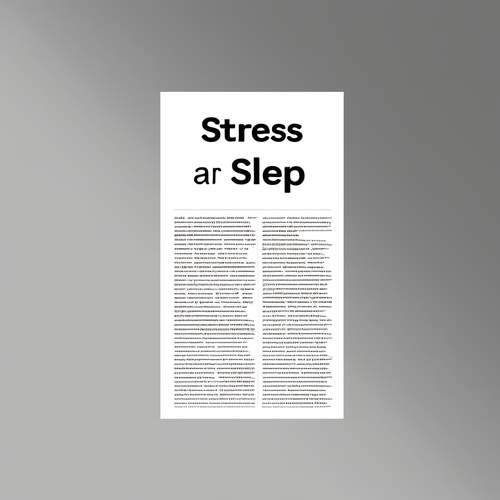
By /May 22, 2025
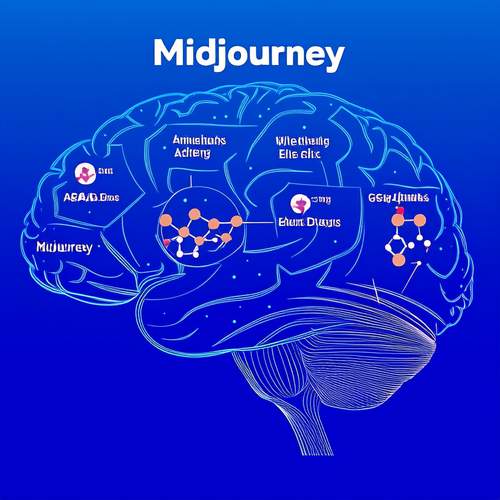
By /May 22, 2025

By /May 22, 2025
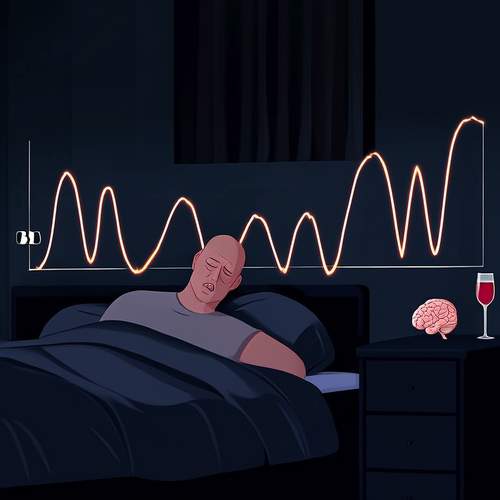
By /May 22, 2025

By /May 21, 2025

By /May 21, 2025
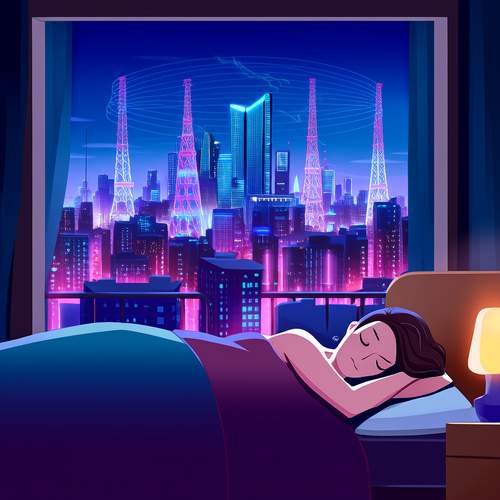
By /May 21, 2025

By /May 21, 2025

By /May 21, 2025

By /May 21, 2025

By /May 21, 2025
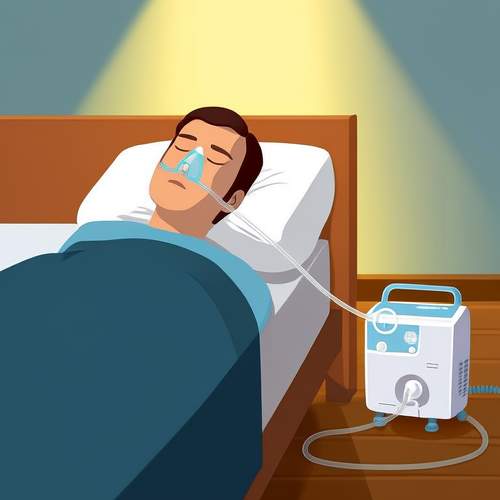
By /May 21, 2025

By /May 21, 2025

By /May 21, 2025